Week in Freethought History (August 19-25)
Here’s your Week in Freethought History: This is more than just a calendar of events or mini-biographies – it’s a reminder that, no matter how isolated and alone we may feel at times, we as freethinkers are neither unique nor alone in the world.
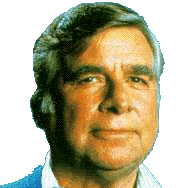 Last Sunday, August 19, but in 1921, the creator of the "Star Trek" TV series, Gene Roddenberry was born. Roddenberry’s "Star Trek," began in 1966 and continued, often against the wishes of Paramount Studios, by popular demand, through an animated series, the Next Generation, Deep Space 9, Voyager, Enterprise, many films with the original and new casts, and other permutations on the theme. It became the most successful franchise in TV history. In it you see no evidence of the supernatural – everything eventually has a materialistic explanation – and no patience with gods or superstitions. “Religions vary in their degree of idiocy,” said Roddenberry in an interview published after his death in 1991, “but I reject them all. … It wasn’t until I was beginning to do 'Star Trek' that the subject of religion arose again. What brought it up was that people were saying that I would have a chaplain on board the Enterprise. I replied, “No, we don’t.”
Last Sunday, August 19, but in 1921, the creator of the "Star Trek" TV series, Gene Roddenberry was born. Roddenberry’s "Star Trek," began in 1966 and continued, often against the wishes of Paramount Studios, by popular demand, through an animated series, the Next Generation, Deep Space 9, Voyager, Enterprise, many films with the original and new casts, and other permutations on the theme. It became the most successful franchise in TV history. In it you see no evidence of the supernatural – everything eventually has a materialistic explanation – and no patience with gods or superstitions. “Religions vary in their degree of idiocy,” said Roddenberry in an interview published after his death in 1991, “but I reject them all. … It wasn’t until I was beginning to do 'Star Trek' that the subject of religion arose again. What brought it up was that people were saying that I would have a chaplain on board the Enterprise. I replied, “No, we don’t.”
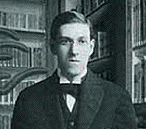 Last Monday, August 20, but in 1890, American author H.P. Lovecraft, was born. Preferring Tales of the Arabian Nights and Greek mythology to Christian folklore, a 5-year-old Lovecraft once shocked his Sunday school class by taking the side of the lions over the Christians! Lovecraft’s writings included a hundred historical, science fiction, and fantasy novels. Although in print to this day, the author never had a book of stories published until after his death in 1937! In his biography of Lovecraft, L. Sprague De Camp says, “His skeptical view of the supernatural – his nontheism – and his love of the Classical world were not the only lasting passions formed in his childhood. … he embraced eighteenth-century rationalism, which confirmed him in his atheistic materialism.”
Last Monday, August 20, but in 1890, American author H.P. Lovecraft, was born. Preferring Tales of the Arabian Nights and Greek mythology to Christian folklore, a 5-year-old Lovecraft once shocked his Sunday school class by taking the side of the lions over the Christians! Lovecraft’s writings included a hundred historical, science fiction, and fantasy novels. Although in print to this day, the author never had a book of stories published until after his death in 1937! In his biography of Lovecraft, L. Sprague De Camp says, “His skeptical view of the supernatural – his nontheism – and his love of the Classical world were not the only lasting passions formed in his childhood. … he embraced eighteenth-century rationalism, which confirmed him in his atheistic materialism.”
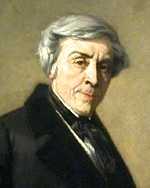 Last Tuesday, August 21, but in 1798, French historian Jules Michelet was born. From his earliest years, Michelet was a Republican and a Freethinker, and wrote blisteringly anti-Catholic works. The French government under Louis Philippe considered arresting Michelet, but feared he was too popular for martyrdom. The French Catholic Church paid Michelet the ultimate compliment by placing one book on their Index of Prohibited Books. A witness to the 1848 revolution, Michelet published two multi-volume masterworks that transformed history from literature to near science: History of France (1866) and History of the French Revolution (1853). He invented the word “renaissance,” meaning “rebirth.” Jules Michelet once said, “Man is his own Prometheus. There is no need for any faith but in humanity” and “The historian’s first duties are sacrilege and the mocking of false gods. They are his indispensable instruments for establishing the truth.”
Last Tuesday, August 21, but in 1798, French historian Jules Michelet was born. From his earliest years, Michelet was a Republican and a Freethinker, and wrote blisteringly anti-Catholic works. The French government under Louis Philippe considered arresting Michelet, but feared he was too popular for martyrdom. The French Catholic Church paid Michelet the ultimate compliment by placing one book on their Index of Prohibited Books. A witness to the 1848 revolution, Michelet published two multi-volume masterworks that transformed history from literature to near science: History of France (1866) and History of the French Revolution (1853). He invented the word “renaissance,” meaning “rebirth.” Jules Michelet once said, “Man is his own Prometheus. There is no need for any faith but in humanity” and “The historian’s first duties are sacrilege and the mocking of false gods. They are his indispensable instruments for establishing the truth.”
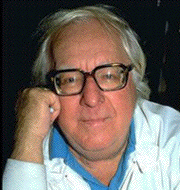 Last Wednesday, August 22, but in 1920, prolific science fiction writer Ray Bradbury was born. One of the most celebrated writers of the 20th century, Bradbury published more than thirty books, including about 600 short stories, numerous poems, essays, and plays. He is best known for his science fiction and fantasy works: The Martian Chronicles (1950); The Illustrated Man (1951); and Fahrenheit 451 (1953). Bradbury's fiction sometimes even anticipated the future: a 1949 short story called “The Veldt” described microwave ovens and virtual reality. As for his opinion toward religion, Bradbury – who died this June 5 – seems to have had a theistic, if not a Pantheistic, view of the universe. He once said human purpose is to be a witness to the universe and was skeptical about the afterlife, saying, “Ghosts are memories, so there are no real ghosts, the way we imagine. It's a nice idea, ghosts, just like flying saucers are a nice idea, but it's a complete lie.”
Last Wednesday, August 22, but in 1920, prolific science fiction writer Ray Bradbury was born. One of the most celebrated writers of the 20th century, Bradbury published more than thirty books, including about 600 short stories, numerous poems, essays, and plays. He is best known for his science fiction and fantasy works: The Martian Chronicles (1950); The Illustrated Man (1951); and Fahrenheit 451 (1953). Bradbury's fiction sometimes even anticipated the future: a 1949 short story called “The Veldt” described microwave ovens and virtual reality. As for his opinion toward religion, Bradbury – who died this June 5 – seems to have had a theistic, if not a Pantheistic, view of the universe. He once said human purpose is to be a witness to the universe and was skeptical about the afterlife, saying, “Ghosts are memories, so there are no real ghosts, the way we imagine. It's a nice idea, ghosts, just like flying saucers are a nice idea, but it's a complete lie.”
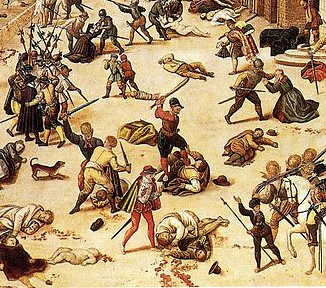 Yesterday, August 24, but in 1572, the Saint Bartholomew’s Day Massacre began. The massacre was masterminded by Catherine de’ Medici, regent for the 10-year-old King Charles IX, who feared too much Protestant/Huguenot reform of the corrupt Catholic Church in France. Catherine let the Jesuits back into France, who began circulating provocative rumors of a Huguenot plot to sack and burn Paris. Using a gathering in Paris of Huguenots for a royal wedding to make peace between the cohabiting Christian sects, Catherine browbeat the young king into approving a Huguenot slaughter. On Sunday, 24 August 1572, at daybreak, French Catholic troops and Catholic citizens attacked and eyewitnesses noted “bloud did flow in such abundance through the chanels of the streets, that full streams of bloud did run down into the River.” In all of France about 50,000 were slain – more than twice as many people killed over religion in 40 days, as French revolutionaries killed over politics in three years! Catherine de’ Medici received the congratulations of all the Catholic powers. Pope Gregory XIII ordered bonfires lighted and commanded a gold medal to be minted. The Saint Bartholomew’s Day Massacre remains the bloodiest massacre of Christians by Christians in history.
Yesterday, August 24, but in 1572, the Saint Bartholomew’s Day Massacre began. The massacre was masterminded by Catherine de’ Medici, regent for the 10-year-old King Charles IX, who feared too much Protestant/Huguenot reform of the corrupt Catholic Church in France. Catherine let the Jesuits back into France, who began circulating provocative rumors of a Huguenot plot to sack and burn Paris. Using a gathering in Paris of Huguenots for a royal wedding to make peace between the cohabiting Christian sects, Catherine browbeat the young king into approving a Huguenot slaughter. On Sunday, 24 August 1572, at daybreak, French Catholic troops and Catholic citizens attacked and eyewitnesses noted “bloud did flow in such abundance through the chanels of the streets, that full streams of bloud did run down into the River.” In all of France about 50,000 were slain – more than twice as many people killed over religion in 40 days, as French revolutionaries killed over politics in three years! Catherine de’ Medici received the congratulations of all the Catholic powers. Pope Gregory XIII ordered bonfires lighted and commanded a gold medal to be minted. The Saint Bartholomew’s Day Massacre remains the bloodiest massacre of Christians by Christians in history.
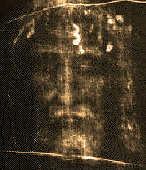 Today, August 25, but in 1978, the famous “Shroud of Turin,” venerated by Catholics as the burial cloth of the crucified Jesus, went on public display for the first time in 45 years. Even the Catholic Encyclopedia is parsimonious in its credulity: “…the claim is made that it is the actual ‘clean linen cloth’ in which Joseph of Arimathea wrapped the body of Jesus Christ (Matthew 27:59).” In 1988, a team of experts from three universities each independently tested and dated the cloth to around 1350. Joe Nickell, who collaborated with scientific and technical experts on his Inquest on the Shroud of Turin (2nd Ed., 1992) and Walter McCrone, a microchemist, in his Judgment Day for the Shroud of Turin (1999), both demonstrate that the shroud is a medieval fake. In his article on the shroud from the Skeptic’s Dictionary, Robert Todd Carroll sums up: “Even if it is established beyond any reasonable doubt that the shroud originated in Jerusalem and was used to wrap up the body of Jesus, so what? Would that prove Jesus rose from the dead? I don’t think so. To believe anyone rose from the dead can’t be based on physical evidence, because resurrection is a physical impossibility.”
Today, August 25, but in 1978, the famous “Shroud of Turin,” venerated by Catholics as the burial cloth of the crucified Jesus, went on public display for the first time in 45 years. Even the Catholic Encyclopedia is parsimonious in its credulity: “…the claim is made that it is the actual ‘clean linen cloth’ in which Joseph of Arimathea wrapped the body of Jesus Christ (Matthew 27:59).” In 1988, a team of experts from three universities each independently tested and dated the cloth to around 1350. Joe Nickell, who collaborated with scientific and technical experts on his Inquest on the Shroud of Turin (2nd Ed., 1992) and Walter McCrone, a microchemist, in his Judgment Day for the Shroud of Turin (1999), both demonstrate that the shroud is a medieval fake. In his article on the shroud from the Skeptic’s Dictionary, Robert Todd Carroll sums up: “Even if it is established beyond any reasonable doubt that the shroud originated in Jerusalem and was used to wrap up the body of Jesus, so what? Would that prove Jesus rose from the dead? I don’t think so. To believe anyone rose from the dead can’t be based on physical evidence, because resurrection is a physical impossibility.”
We can look back, but the Golden Age of Freethought is now. You can find full versions of these pages in Freethought history at the links in my blog, FreethoughtAlmanac.com.

